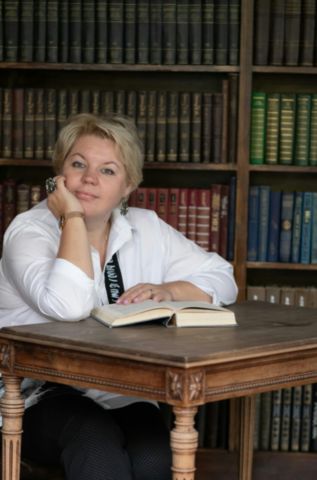Today, South Ural State University keeps developing in all spheres of interest: participating in the World-class Ural Interregional Research and Education Centre (UIREC) and the Priority 2030 program, and creating development opportunities for university students. All this is closely associated with the educational policy implemented at our university.
We talked about this and many other things with Marina Potapova, Vice-Rector for Education.
Last year SUSU became a member of the Priority 2030 federal program. How did this influence the educational policy at our university?
Even before participating in the Priority program, our university had started to develop a student-centred model of education. Acting Rector Alexander Wagner often highlights the fact that students are the most important people at the university. Young people want to develop, acquire skills and accumulate the knowledge and accomplishments that they will take with them after graduating. And today, SUSU gives students an opportunity to independently choose additional qualifications and competencies they would like to obtain.
Let us imagine an average student who is about to transfer to the second year of studies and is aware of what s/he wants. What opportunities can SUSU offer for his/her development?
Here, a lot depends on the priorities of this student, but to answer your question, there are plenty: minors, project-based learning, technological entrepreneurship, digital department, language training. All of this already exists and actively functions at our university. To participate in these programs, one does not even need to be a straight-A student, a desire is all that you need. With the creation of the interuniversity campus, there will be even more of such opportunities.
How the participation of the university in the interuniversity campus will influence the SUSU educational projects?
Six universities of our region are participating in the interuniversity campus project. These are: South Ural State University, Chelyabinsk State University, South Ural State Agrarian University, Nosov Magnitogorsk State Technical University, South Ural State Medical University and International Institute of Design and Service. Each university has its own specifics, strengths and development priorities. Within the framework of the interuniversity campus, educational programs will be designed in collaboration with the participating universities. Now, all universities are facing an important task: to provide training of highly qualified specialists who are ready to quickly integrate into an extremely dynamic digital economy and to create technological and industrial projects.
How does the university participate in the life of graduates? Does SUSU help them find a job and, as you said, integrate into the modern digital economy?
The process of choosing a place of work and tasks, which a specialist will be dealing with after receiving a diploma, starts long before graduation from SUSU. Each student takes an internship at partner enterprises. We are moving towards what I call a seamless employment.
How could you define a seamless employment?
During the process of learning, students obtain a job and after receiving their diploma they move from the university bench directly to their workplace.
This is the first interview from the #OpportunitiesPriority series, where we will talk about the educational policy of our university.
South Ural State University is a university of transformations, where innovative research is conducted in most of the priority fields of science and technology development. In accordance with the strategy of scientific and technological development of the Russian Federation, the university is focused on the development of big scientific interdisciplinary projects in the field of digital industry, materials science, and ecology. In 2021 SUSU became the winner in the competition under the Priority 2030 program. The university acts as a regional project office of the World-class Ural Interregional Research and Education Centre (UIREC), which is aimed at solving the tasks of the Science and Universities National Project. In 2023 SUSU will celebrate its 80th anniversary.
Information:
The project on creating a network of campuses is part of the Science and Universities National Project implemented by the Russian Ministry of Education and Science. The task of creating at least 25 world-class campuses by 2030 was set by the Russian President Vladimir Putin. Two waves of competitive selection rounds for projects of new campuses have already taken place. In 2021, out of 27 applications received from 22 regions, 8 campus projects were selected for implementation, including a project from the Chelyabinsk Region. In 2022, 39 applications were submitted from 34 regions, and 9 campus projects were selected.




